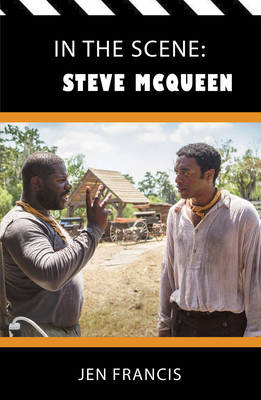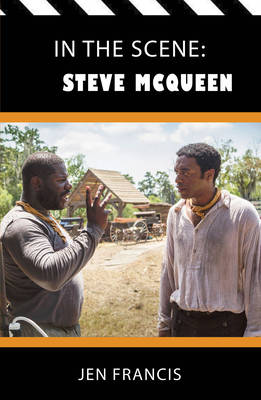
- Afhalen na 1 uur in een winkel met voorraad
- Gratis thuislevering in België vanaf € 30
- Ruim aanbod met 7 miljoen producten
- Afhalen na 1 uur in een winkel met voorraad
- Gratis thuislevering in België vanaf € 30
- Ruim aanbod met 7 miljoen producten
Zoeken
€ 22,45
+ 44 punten
Omschrijving
"A readable and wide-ranging consideration of McQueen's work." -- Kirkus Reviews
Part of our new series of accessible introductory guides to significant contemporary filmmakers, this guide is a must for film fans and students of contemporary cinema alike. An introductory chapter highlights thematic and visual devices, followed by an exploration of British director Steve McQueen's work, from his short films and video art through his critically acclaimed feature films, including his masterpiece, the Academy Award-winning 12 Years A Slave, to his BBC TV series Small Axe and the new war film, Blitz.
Londoner Steve McQueen shot to fame in 1999 when he won the prestigious Turner Prize for innovative art. In 2020, the Tate Gallery in London held an exhibition of over a dozen works spanning film, photography and sculpture, including his homage to the African American actor and civil rights activist Paul Robeson. Ranging across the visual arts, to advertising, documentary and drama, McQueen often tackles hard-hitting topics such as discrimination and injustice in powerful, cinematic ways.
Includes interviews with historian, David Olusoga and director of film programming at the Lincoln Center, Dennis Lim.
Part of our new series of accessible introductory guides to significant contemporary filmmakers, this guide is a must for film fans and students of contemporary cinema alike. An introductory chapter highlights thematic and visual devices, followed by an exploration of British director Steve McQueen's work, from his short films and video art through his critically acclaimed feature films, including his masterpiece, the Academy Award-winning 12 Years A Slave, to his BBC TV series Small Axe and the new war film, Blitz.
Londoner Steve McQueen shot to fame in 1999 when he won the prestigious Turner Prize for innovative art. In 2020, the Tate Gallery in London held an exhibition of over a dozen works spanning film, photography and sculpture, including his homage to the African American actor and civil rights activist Paul Robeson. Ranging across the visual arts, to advertising, documentary and drama, McQueen often tackles hard-hitting topics such as discrimination and injustice in powerful, cinematic ways.
Includes interviews with historian, David Olusoga and director of film programming at the Lincoln Center, Dennis Lim.
Specificaties
Betrokkenen
- Auteur(s):
- Uitgeverij:
Inhoud
- Aantal bladzijden:
- 176
- Taal:
- Engels
- Reeks:
Eigenschappen
- Productcode (EAN):
- 9781913641177
- Verschijningsdatum:
- 31/07/2025
- Uitvoering:
- Paperback
- Formaat:
- Trade paperback (VS)
- Afmetingen:
- 129 mm x 198 mm
- Gewicht:
- 240 g

Alleen bij Standaard Boekhandel
+ 44 punten op je klantenkaart van Standaard Boekhandel
Beoordelingen
We publiceren alleen reviews die voldoen aan de voorwaarden voor reviews. Bekijk onze voorwaarden voor reviews.








